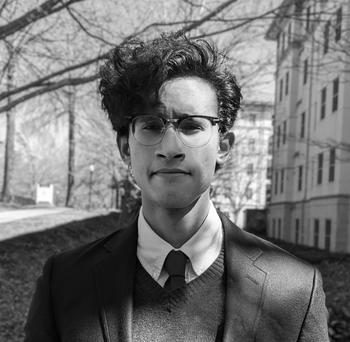Policy expert suggests strategies to combat ‘campus wokeness’
Frederick M. Hess with the American Enterprise Institute said that ‘campus wokeness’ includes ‘intimidated students’ and ‘the new reign of diversity, equity, and inclusion (DEI) enforcers.’
When colleges ‘claim to be racist or oppressive as a way of virtue-signaling,’ they ‘should be ineligible for federal aid,' Hess argued.
A recent report by the American Enterprise Institute (AEI) suggests how “public officials, donors, litigators, and other actors” can combat “campus wokeness.”
Frederick M. Hess, a senior fellow and the Director of Education Policy Studies at AEI, published his report as an op-ed in National Review.
Hess argued that campus wokeness involves “intimidated students,” faculty who “fear to speak up” amidst “the new reign of diversity, equity, and inclusion (DEI) enforcers,” “[a]nd academic journals and learned societies” that “have become increasingly politicized.”
One of his solutions references a 2020 incident at Princeton University. After the university’s president claimed that the institution is systemically racist, the Department of Education (DoE) under the Trump administration warned that Princeton could pay back over $75 million in federal funds.
“Princeton’s ‘admitted racism’ raises questions about the accuracy of ‘nondiscrimination and equal opportunity assurances’ it’s made to the DOE,” the New York Post reported.
“Officials [were] also ‘concerned Princeton’s many nondiscrimination and equal opportunity claims to students, parents, and consumers in the market for education certificates may have been false, misleading, and actionable substantial misrepresentations,’” the New York Post continued, quoting Assistant Secretary Robert King.
A spokesperson for Princeton clarified the president’s statement and wrote, “‘It is unfortunate that the Department appears to believe that grappling honestly with the nation’s history and the current effects of systemic racism runs afoul of existing law.’” DoE closed its investigation into Princeton about five months after it commenced, according to The Daily Princetonian.
[RELATED: Princeton alumni group publishes letter criticizing event’s lack of viewpoint diversity]
Hess said that Princeton’s “backpedaling” happened “at a remarkable rate.”
“College leaders have increasingly asserted that their institutions are systemically racist. If this is true, their colleges should be ineligible for federal aid,” Hess wrote. “If it’s not true, such assertions are irresponsible and destructive.”
Hess told Campus Reform that states can pursue investigations similar to the one led by the DoE.
“Where states are funding institutions which claim to be racist or oppressive as a way of virtue-signaling, the executive branch should ask whether that’s consistent with state laws governing higher ed,” Hess wrote. “Even if it is, there’s a question as to whether taxpayers should be funding or supporting such entities.”
[RELATED: WATCH: College students combat woke intolerance on campus]
His report also called for “new educational institutions.” Hess told Campus Reform that these “include institutions firmly committed to free inquiry and heterodoxy,” such as the University of Austin (UATX). He also suggested that “some” can “provide communities that are unapologetically right-leaning in orientation,” which he compared to left-leaning institutions such as “Oberlin, Swarthmore, or Harvard.”
UATX and other institutions have a curriculum “that gives students a taste of higher education free of censorship and cancel culture.” In the summer of 2022, UATX hosted “the Forbidden Courses,” a program featuring “instructors [who] are known for their opposition to woke and leftist ideologies on college campuses,” according to Campus Reform.
Other institutions, including faith-based colleges and universities, have seen their enrollment increase as students seek a classical education.
Campus Reform shared a report from the founder and CEO of the Classic Learning Test (CLT), Jeremy Tate, who named “‘just a sampling of institutions that have embraced a curriculum rooted in Western tradition—and the faith—only to discover their programs have become more relevant, not less so, to a younger generation.’”
A graduate of Hillsdale College, one of the institutions named in Tate’s report, told Campus Reform that her classes were “‘miles from the common criticism of colleges that mine texts for political grievances or personal validation, whether to bolster one’s preexisting beliefs or further one’s career.’”
Campus Reform contacted Princeton University and UATX for comment. This article will be updated accordingly.

